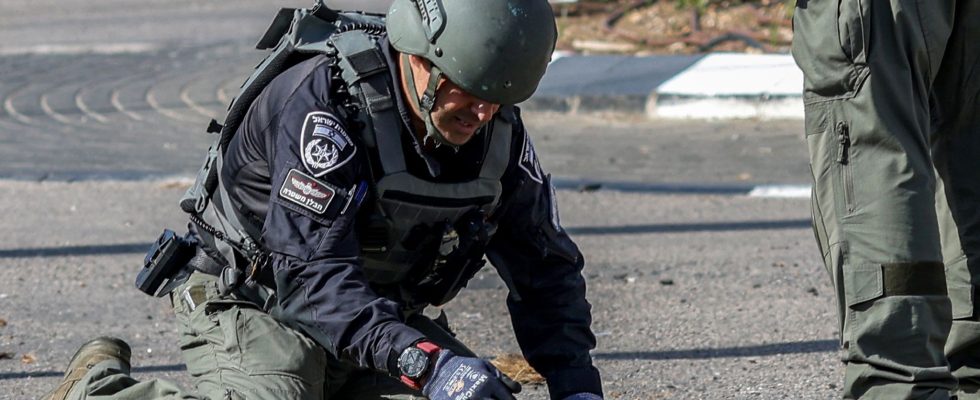This is the most significant escalation since the war between Israel and Hezbollah in 2006. Southern Lebanon was bombarded by the Israeli army on Friday April 7 before dawn. This attack is a response to the 34 rockets fired at Israel the day before, the day of Passover, most of which were intercepted.
These strikes are the latest episode in a sharp rise in tensions in the Middle East since Wednesday, after a relative lull in the Israeli-Palestinian conflict observed since the start of Ramadan on March 23. These new clashes have international observers fearing a wider outbreak of violence in the region.
Hamas blamed
Violent explosions therefore sounded in the region of Tire, in southern Lebanon, around one o’clock in the morning. Two shells reportedly fell near a Palestinian refugee camp in Rashidiye, while another reportedly fell on the roof of a house in a banana plantation in the same area, from which rockets were fired on Thursday.
The Israeli army claimed to have struck three “infrastructures” belonging to the Palestinian Hamas there. In a statement announcing the strikes, the IDF said it was certain that the rocket fire from Lebanon was the work of Hamas or Islamic Jihad (another Palestinian movement), and not its pet peeve, pro-Hezbollah. Iranian. The Israeli army has warned that it will “not allow the terrorist organization Hamas to operate from Lebanon and that it holds the Lebanese state responsible for any fire directed at Israel from its territory.” “We will strike our enemies and they will pay the price for each attack,” threatened Israeli Prime Minister Benjamin Netanyahu.
The strikes were not directly claimed by Hamas. But the latter, followed by Islamic Jihad, informed Egypt, which usually mediates between Israel and Palestinian groups, on Friday that “the factions will continue firing rockets if Israel continues its aggressions and air raids”, they said. sources within these movements in Gaza told AFP. Hamas leader Ismail Haniyeh was also visiting Lebanon when the rockets were fired at Israel on Thursday.
Although Israel condemned Hamas for Thursday’s attack, “security experts said Hezbollah, the powerful Shiite group that helps Israel’s main enemy Iran project power in the region, had to give permission, informs the British newspaper THE Guardian.
Hezbollah support
Shiite Hezbollah, de facto master of southern Lebanon, had indeed proclaimed Thursday its support for “all measures” that the Palestinian armed groups could take against Israel. The movement has in recent weeks faced several attacks in Syrian territory, including the destruction of what Israel has identified as drone manufacturing sites.
The Gaza Strip was also once again the target of several air raids during the night of Thursday. The Israeli army claimed to have targeted two targets, including tunnels, a heavy machine gun and weapons workshops belonging to Hamas.
This intensification of the clashes follows the violent irruption, Wednesday, of the Israeli police in the Al-Aqsa mosque in Jerusalem, the third holiest site of Islam, in order to dislodge “extremist” Palestinians, according to the Prime Minister Benjamin Netanyahu. “If the Zionists think they can defile the Al-Aqsa mosque, they must understand that this could set the whole region on fire,” warned Hashem Safieddine, a Hezbollah leader, quoted by the chain of the movement.
Lebanon calls for “stopping the escalation”
Lebanon reacted very quickly, its foreign minister claiming to want to “preserve calm” in the south of the country, and calling on the international community to “put pressure on Israel to stop the escalation”. The United Nations Interim Force (UNIFIL), installed on the ceasefire line since the end of the 1970s to act as a buffer, affirmed that the two countries “do not want war”. The Blue Helmets also contacted the authorities of the two countries, calling on “all parties to cease all their actions”.
A few hours after the bombings, the Lebanese army also quickly announced, as a gesture of goodwill, that it had dismantled a new rocket launch pad discovered in the Marjeyoun plain near the border, and likely to be fired at Israel. Thursday evening, already, she had claimed to have dismantled launch pads and Prime Minister Najib Mikati condemned the firing on Israel from Lebanese territory.
